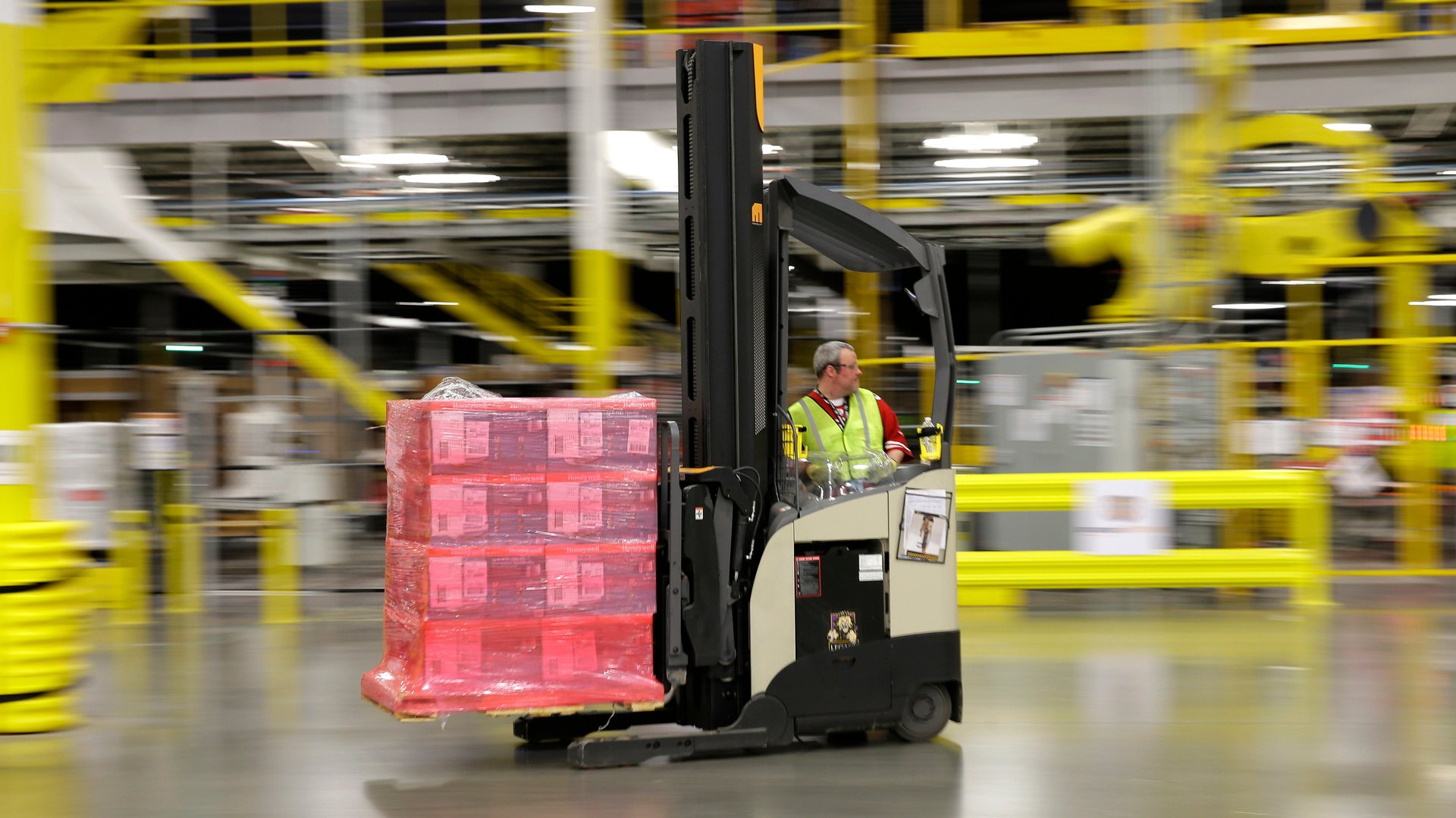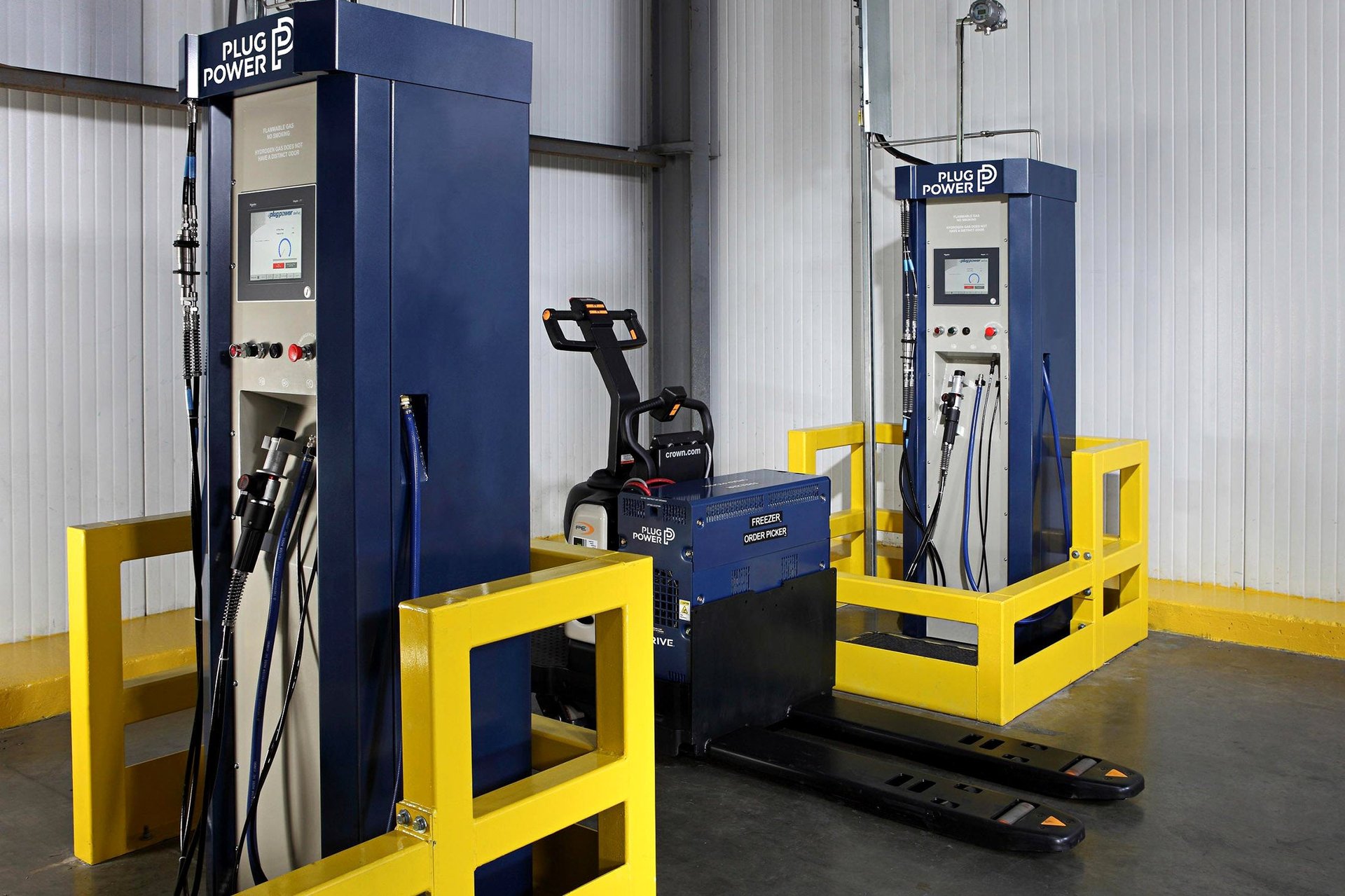Hydrogen-powered vehicles are finally taking off—inside Amazon and Walmart warehouses
Automakers have been touting hydrogen cars for at least a decade. The newest edition of Honda Clarity, launched earlier this year in the US, comes with everything you’d want in a modern car—including a $15,000 fuel allowance. As one reviewer put it, “Honda will do nearly anything to get you in a hydrogen car.”


Automakers have been touting hydrogen cars for at least a decade. The newest edition of Honda Clarity, launched earlier this year in the US, comes with everything you’d want in a modern car—including a $15,000 fuel allowance. As one reviewer put it, “Honda will do nearly anything to get you in a hydrogen car.”
In principle, if hydrogen gas comes from carbon-free sources, a hydrogen car has nearly all the benefits of a gasoline car—compact size, good mileage, and instant refueling—with none of the emissions. Burning hydrogen only produces water.
Despite these efforts, there are fewer than 2,000 hydrogen cars on the road in the US. The biggest problem is that there aren’t nearly enough fueling stations. Plug Power thinks hydrogen is well suited to a different sort of vehicle: forklifts.
Running a gasoline-powered forklift inside a warehouse is not feasible, because the soot produced ruins both employees’ lungs and the inventory being shuttled around. That’s why most forklifts use batteries—more specifically, lead-acid batteries.

Plug Power provides hydrogen fuel stations and fuel cells powered by hydrogen as an alternative to lead-acid batteries. The cost of a forklift doubles to about $60,000, but over a 10-year lifespan the overall cost is 10% cheaper, according to a 2013 US national lab study. The savings come from time saved refueling, which can be done in minutes instead of hours for batteries, which in turn means fewer forklifts are required for the same amount of work. Plug Power says cost advantage of hydrogen continues to grow.
In the last few months, Plug Power has struck two $600-million deals. One with Amazon for forklift fleets in 11 warehouses, and another with Walmart for the same in 10 warehouses. (Walmart is already using Plug Power forklifts in 22 warehouses). Other forklift-makers like Toyota and Hyster-Yale are looking to get in the hydrogen game, too. There are some 18,000 forklifts—about 3% of the US total fleet, as per Bloomberg—that use hydrogen as a fuel. Other companies, like Ballard Power Systems, are looking at hydrogen for buses, trucks, and drones. Like forklifts, these vehicles all revolve around a central depot, and thus don’t require a network of refueling stations.
Advances in lithium-ion batteries, which store more energy, charge faster, and last longer than lead-acid batteries, could halt the rise of hydrogen. Right now, lithium-ion batteries cost five times as much per watt as lead-acid batteries, but the technology keeps getting better, and costs continue to fall.